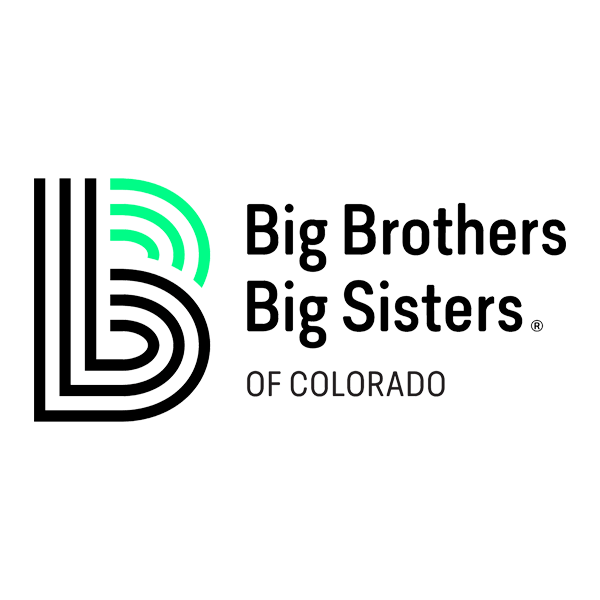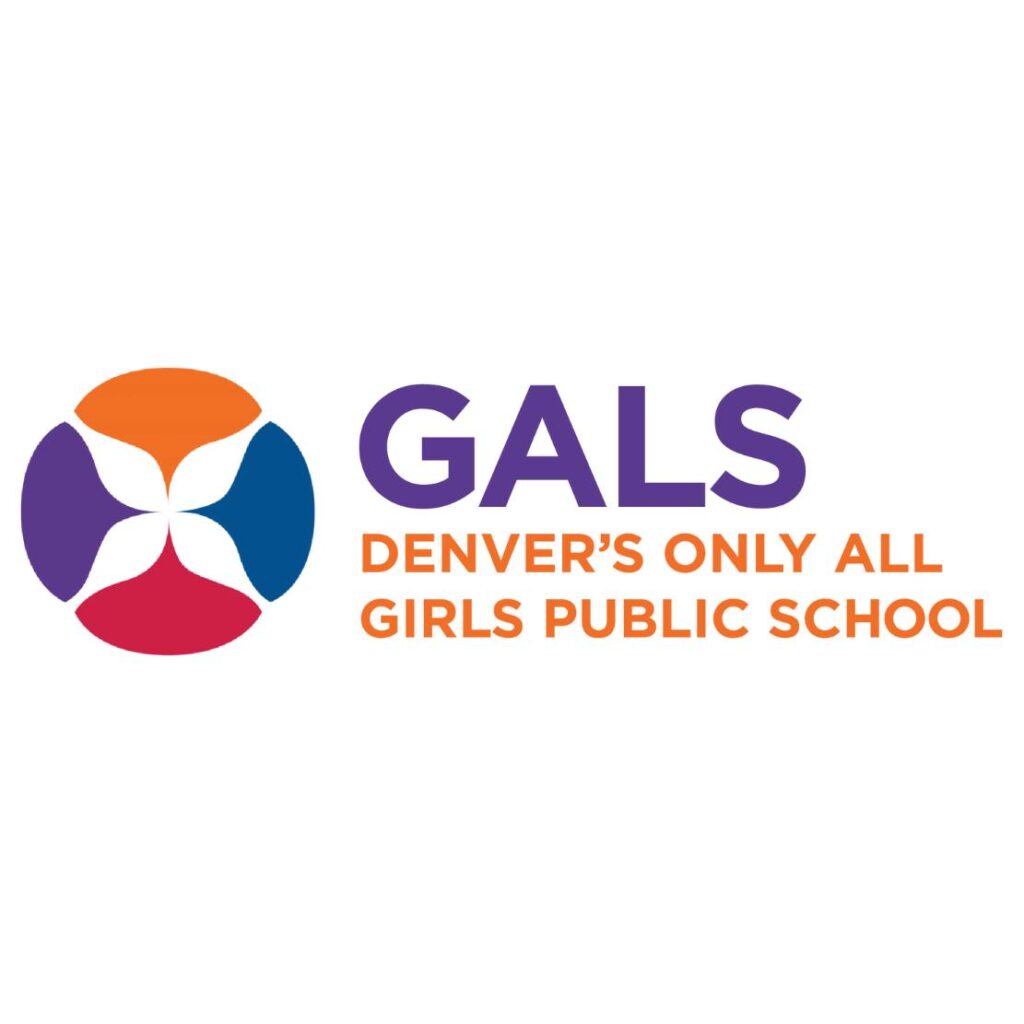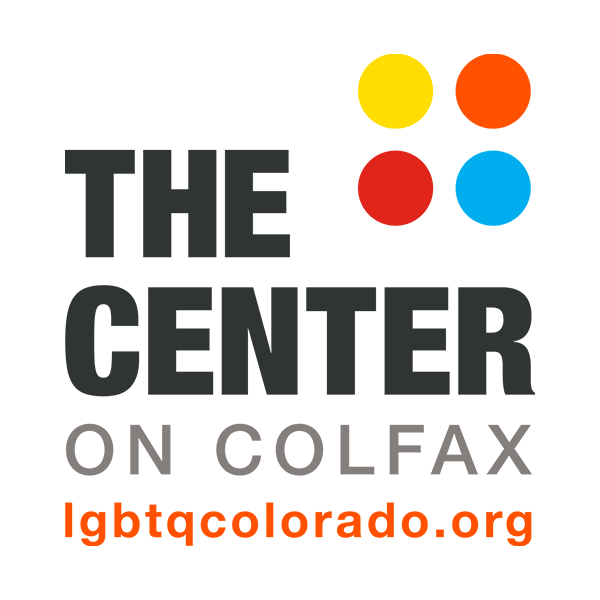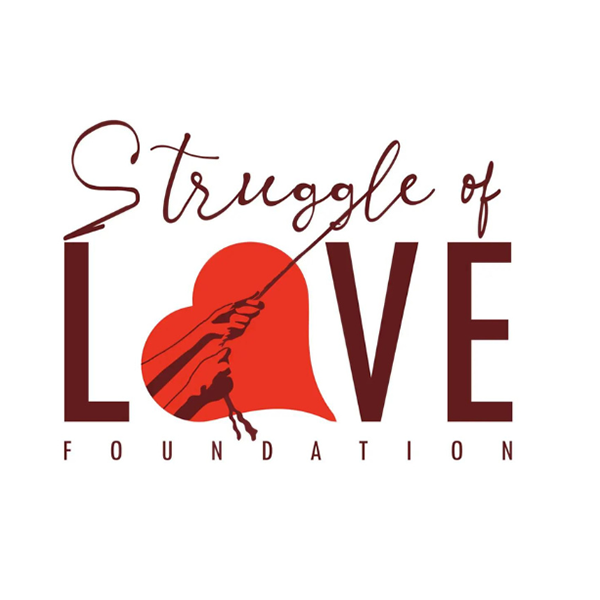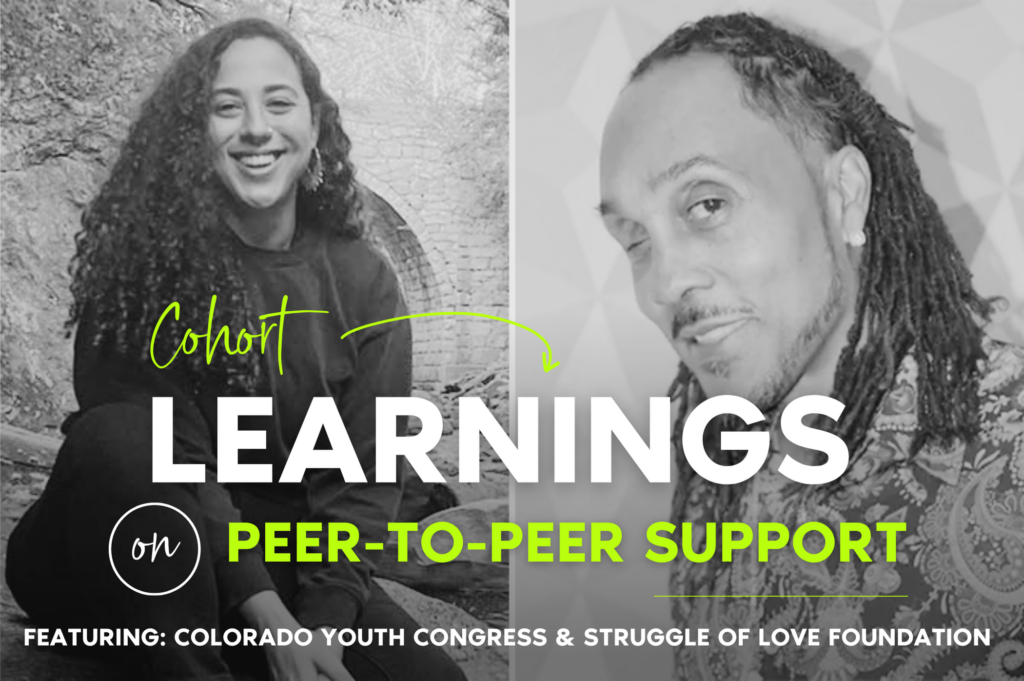
May 14, 2024
Cohort Learnings: Peer-to-Peer Community of Practice
By Angie McPhaul & Sara Nadelman
Gary Community Ventures publishes learnings from our active cohorts and communities of practice on a trimester basis. The goal of sharing these learnings is to provide updates on the progress of these cohorts as well as key takeaways for the broader business, policy, nonprofit and philanthropic communities as we collectively work to improve the arc of opportunity for Colorado kids and families.
So much of the narrative around youth is focused on the negative outcomes of their mental health issues and the dire state of affairs. And it’s not hard to understand why: The current state of affairs is about as dire as we’d ever want it to get.
In 2021, Children’s Hospital Colorado declared a state of emergency for youth mental health in Colorado. This came after seeing emergency room visits by young people under the age of 18 for mental health issues spike from 1,655 in 2016 to 3,957 in 2021. Meanwhile, Colorado adolescents ages 11 to 18 have seen their rate of poor mental health double since 2017, from 8.8% to 18.5% in 2021.
As well-meaning medical providers, nonprofits and funders have rushed to address the problem, Ananas Mustafa, program director for Colorado Youth Congress and member of Gary’s youth peer-to-peer cohort, has been working hard to listen to the young people she works with at Colorado Youth Congress. Her takeaways are eye-opening.
What’s also true is that youth of color as well as those in the 2SLGBTQ+ community are experiencing disproportionate challenges and more significant struggles with their respective wellbeing.
“It’s not just about adults not understanding young people anymore,” Mustafa said. “Many young people are finding that the solutions devised by adults to address this crisis are actively harming them.”
Mustafa, many of her peers in the youth wellbeing space and a growing body of research suggests there is power in looking at the youth mental health narrative differently. It’s pushed us to embrace a change in the way we talk about youth and their mental health. Rather than focusing on crises and statistics, can we start to articulate the current state of youth wellbeing through the lenses of young people themselves — in ways that ring most true to them?
It’s all pushed our Youth Success team at Gary Community Ventures to deeply consider this question:
Might taking a strengths-based approach with young people — one that reaches them early — prevent poor mental health outcomes before they rise to the level of crisis, giving our youth more opportunities to thrive in the process?
So in the fall of 2023, we launched an open call for organizations engaged in youth peer-to-peer support. Through the open call, we established a community of practice cohort of six organizations — all of whom are centered on the assets and wholeness of youth.
Meet The Cohort
Big Brothers Big Sisters of Colorado
The mission of BBBSC is to create and support one-to-one mentoring relationships that ignite the power and promise of youth. And they hold themselves accountable in this work by working to measure the aspirations, confidence and quality of relationships among their members, by helping young people avoid risky behaviors and helping them find ways to thrive in school.
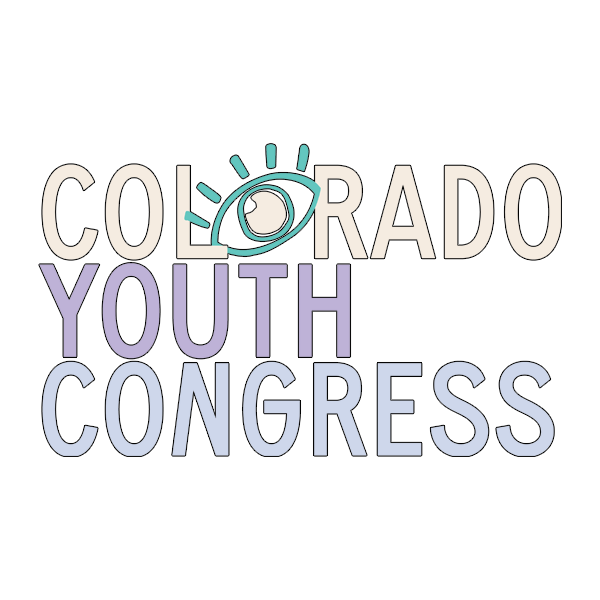
Colorado Youth Congress
CYC is an out-of-school leadership program made up of a diverse community of 50 young people from across Colorado, with a focus on wellness, learning and leadership as tools to create justice and well-being across the state. Its members partner with organizations to influence decision-making on issues related to young people. CYC also runs the Youth Leadership Network to ensure that all youth have access to authentic leadership opportunities.
Girls Athletic Leadership School
GALS is Denver’s first and only tuition free, public, all-girls+ college preparatory school in Denver and Colorado. Their curriculum and culture put students front and center, and the results speak for themselves, with 83% of graduates seeing themselves as better prepared for post-secondary success and 90% reporting belonging to a supportive community organization.
The Center on Colfax
Founded in 1976, The Center has grown to become the largest LGBTQ community center in the Rocky Mountain region, giving voice to its community and playing a pivotal role in statewide initiatives to reduce discrimination. Its Rainbow Alley program has been a national model in creating safe, brave spaces for youth ages 10-17 to find community, support and acceptance.

Wezesha Dada Center
Wezesha Dada Center WDC works to advance prosperity, wellbeing and societal transformation among individuals, youth, and communities facing systemic disadvantages They utilize a whole-person approach focused on economic empowerment, community building and investments as well as health and mental wellbeing initiatives that include education, skill development, civic engagement and more.
Struggle of Love Foundation
The Struggle of Love Foundation (SOLF) promotes and creates holistic lifestyles through mentorship, intervention, prevention, health and wellness, with a focus on historically marginalized and underserved communities in Northeast Denver and North Aurora. SOLF programs include Violence Interruption services, Secondary Prevention, the Spreading Our Love Mentor & Leadership Program, Mental Health therapy sessions, the Sacks of Love Food Pantry, youth employment and career readiness, out-of-school camps and community gatherings.
Why Focus on Youth Peer-to-Peer Support Programs?
Research has shown youth-to-youth peer support not only helps young people in distress but also the individuals providing support. What’s more, young people are often in some of the best positions to assist their peers, as they can identify signs of struggle, understand community issues, and notice warning signs before adults.
Additionally, youth peer support programs in schools and communities can contribute to the informal behavioral health workforce, addressing a recognized need and workforce gaps identified by Children’s Hospital Colorado, the Colorado Behavioral Health Administration and the U.S. Surgeon General.
Key Cohort Learnings
This cohort is working on individual and collective goals. Individually, each organization has set targets for program growth or enhancements. Collectively, the cohort is learning how their youth can earn behavioral health certificates and exploring ways that Medicaid might be leveraged to pay for the peer-to-peer support programming. In just a matter of months, they have delivered significant learnings and progress on cohort goals. The following updates are illustrative of the cohort’s progress.
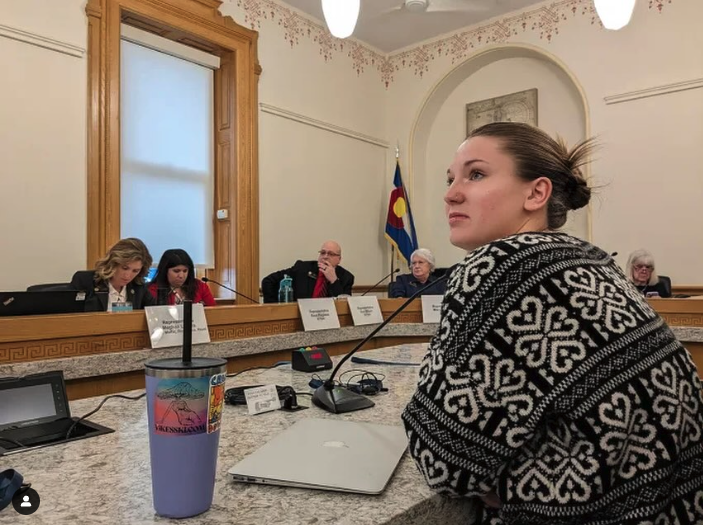
Colorado Youth Congress | Peer-to-Peer Credentialing
Mustafa and her team at Colorado Youth Congress are adding programming and staff thanks to increased interest from students. One of those programs is Besties, a peer support program. In this program, Besties Group Leaders, who are returning CYC members, are trained to facilitate conversations and activities with other members and other peers and then refer those who need it to outside support.
These Group Leaders — as well as all CYC members — are able to tap into a wellness fund established by the organization and a referral network of culturally affirming mental health care providers when they need support.
Over the course of six months within our peer-to-peer cohort, CYC is well on its way to take part in new behavioral health provider credentials offered by the Colorado Community College System. Besties Group Leaders can take courses for free that lead them to behavioral and community health credentials. Mustafa and her team are also looking to scale the Besties program to make it available to more youth across the state.
“We’re working to invest in the holistic wellbeing of young people as a leadership tactic, and it’s really been a wonderful year of growth and experimentation for us,” Mustafa said. “It will likely continue to be experimental in some ways moving forward, but there is a lot more structure taking shape, which we’re excited about.”
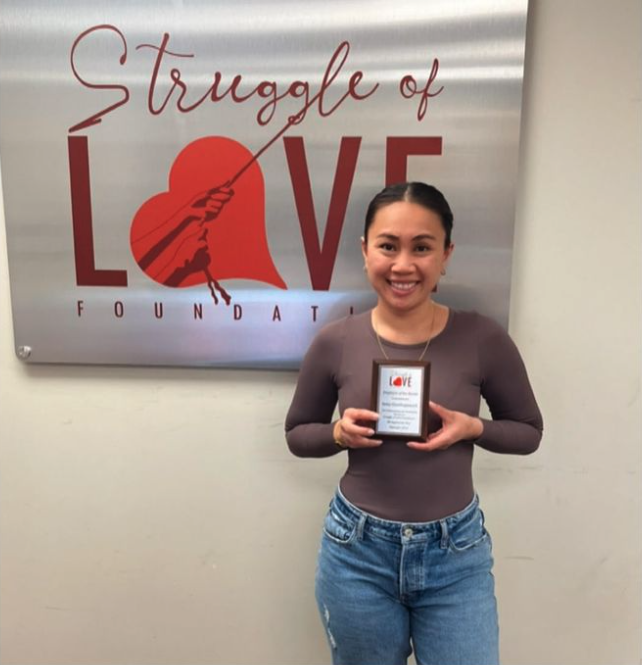
Struggle of Love Foundation | Tapping Medicaid for Mental Health Services
Joel and LaKeisha Hodge, Co-Founders of the Struggle of Love Foundation (S.O.L.), are seeing signs of connection among the young people they work with in northeast Denver, and they’re beginning to form a body of evidence that shows links between those increasing levels of community resilience and the expanding upstream mental health services they’ve been able to provide.
S.O.L.’s mental health team was established in 2015, long before conversations about youth mental health and wellbeing were as present and ongoing as they are now. S.O.L. became certified through the City and County of Denver to provide mental health support services, and they’ve grown that program over time. They’ve raised funds for three full-time, in-house therapists as well as a staff of interns they’ve made available to their community.
Over the course of six months within our peer-to-peer cohort, S.O.L. has identified a pathway to tap into Medicaid as a payor for peer-to-peer support services, which will make them more sustainable and scalable long-term.
“We want to have at least 10 full-time therapists on staff, working different hours to make themselves available for the community,” Joel said. “How do we get folks working graveyard shifts, working weekends? For so many people, mental health needs to be an on-demand service, and we think there might be a way for us to provide that.”
What’s Next for the Cohort
This type of feedback, collaboration and progress from CYC, S.O.L. and our four other cohort members is exactly what our team at Gary Community Ventures hoped to be a part of when the youth peer-to-peer cohort was established. Going forward the cohort will continue to work toward their individual scale goals and collective learning. We look forward to sharing more as the cohort completes its work.
If you’re interested in joining us in this work, there are a number of ways to engage.
- Are you a funder interested in learning more about our youth wellbeing strategies, our six cohort members and others doing important work in this space?
- Are you a policy professional or mental wellbeing practitioner interested in collaborating with us on this work?
- Are you a nonprofit interested in learning more about our next round of grant funding?
Contact Angie McPhaul to learn more
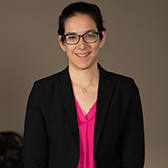
DIRECTOR, YOUTH SUCCESS AT GARY COMMUNITY VENTURES
ANGIE MCPHAUL
Angie McPhaul is the Director of Youth Success at Gary. As the daughter of lifelong educators, she has long been a fan of young people and believer in the power, opportunity, and fun in learning. At Gary, she leads the philanthropic work in youth success, including in our work in academic, youth wellbeing and high school transitions to post secondary success. In particular, she has been working on MySpark Denver and ensuring all kids have opportunities for meaningful out-of- school learning and enrichments.
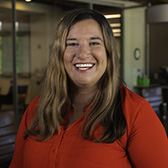
FORMER MANAGER, YOUTH SUCCESS AT GARY COMMUNITY VENTURES
SARA NADLEMAN
As former Manager of Youth Success, Sara Nadelman was focused on Youth Wellbeing, for students facing significant challenges. After previous careers in hospital/medical school administration and then domestic and international anti-human trafficking leadership, she shifted gears yet again to work in philanthropy. Sara is eager to meaningfully collaborate with youth, adults, and communities to drive positive youth wellbeing and self-sufficiency outcomes in Colorado. She visited 52 of the 64 Colorado counties and cannot wait to visit them all.
Related Content
- Introducing Gary’s Approach to Sunset
- DPS Foundation Takes the Lead on My Spark Denver to Expand Access to Youth Enrichment Programs
- Impermanence Is The Future: Four Unsolicited Ideas For Sunsetting the Gates Foundation
- When We Gather: Relationships, Innovation and Harmony
- MyFriendBen Expands to Pueblo County

